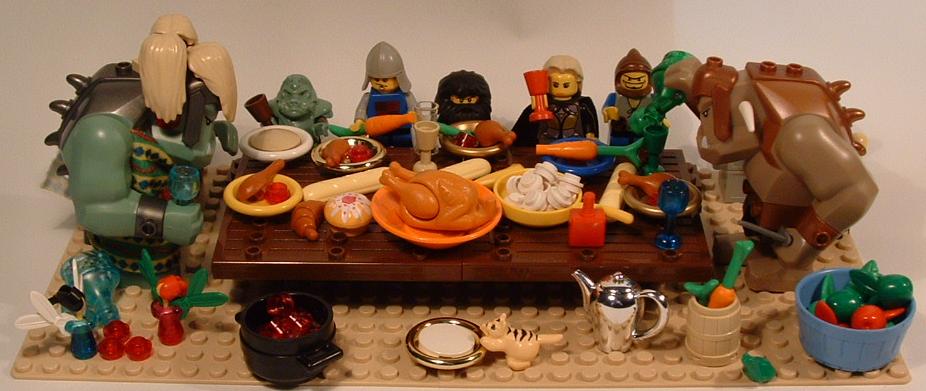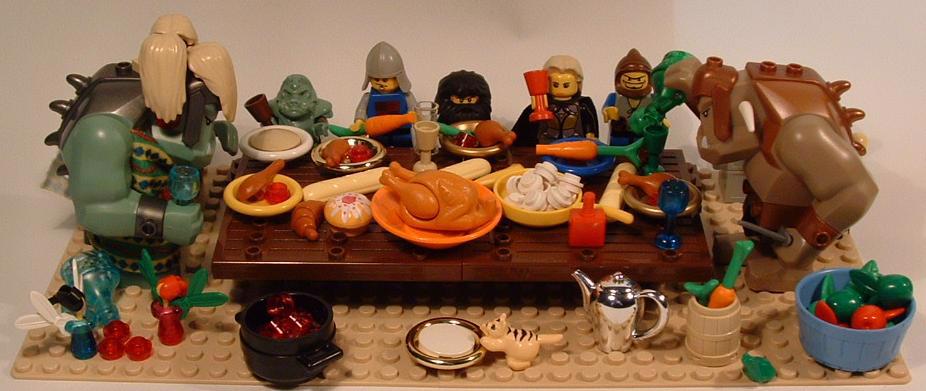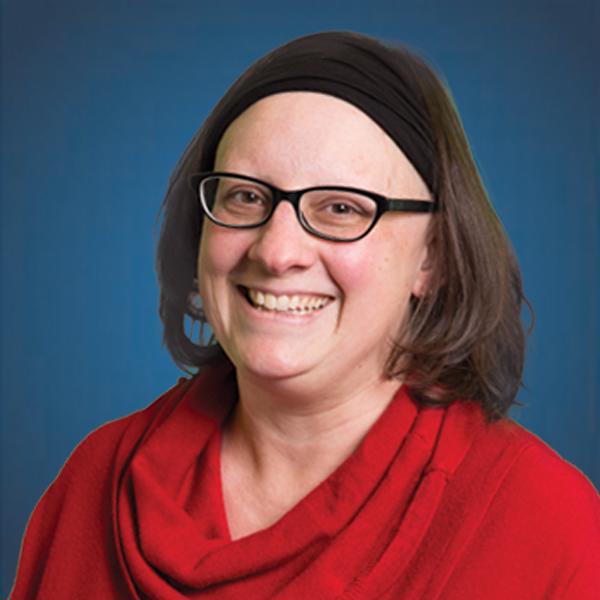Share Your Health History on Thanksgiving
Thanksgiving is National Family History Day.
Take time around the dinner table to learn about your family’s health history. We've got resources that will make it easier to start conversations about chronic illnesses and your grandparents' causes of death.
WAIT! Ask WHO? About WHAT?
Asking for information about major diseases and causes of death isn't a typical holiday request, but conditions such as cancer, heart disease and diabetes often run in families.
While not every Thanksgiving table looks the same, inherited genes from our parents, grandparents and other blood relatives is something we all have in common as humans. (This health history recommendation may not apply to the trolls in the Thanksgiving celebration pictured below.)

Photo credit: Flickr user floodlama
Tracing the illnesses of your parents, grandparents and other blood relatives can help your health care practitioner predict your risk for specific disorders. It could suggest vital screening tests and treatments before any disease is evident. That’s why it’s so important to discuss your family’s health history.
Use the "Family History" website from Medline Plus to start the conversation with your family.
Prepare your Questions
According to the U.S. Surgeon General’s Family History Initiative the following are some of the questions to ask:
- Do you have any chronic illnesses, such as heart disease, high blood pressure or diabetes?
- Have you had any other serious illnesses, such as cancer or stroke?
- How old were you when you developed these illnesses?
- Have you or your partner had any difficulties with pregnancies, such as miscarriages?
- What medications are you currently taking?
Also ask questions about other relatives, both living and deceased, such as:
- What is our family’s ancestry - what country did we come from?
- Has anyone in the family had learning or developmental disabilities?
- What illnesses did our late grandparents have?
- How old were they when they died? What caused their deaths?
Too Busy, Too Distracted, Too Uncomfortable
If you know you'll feel uncomfortable having these conversations in person or don't have time in the holiday agenda, consider asking your family members to use technology to give you the answers instead.
Last Thanksgiving, I asked my dad to use My Family Health Portrait, a tool from the Surgeon General. He input the health history for his side of the family and sent me the file as an email attachment. I can open and print his side of the family's health history, but I can also use the same tool to add my mother's side. To create a family health history for my kids I can add health information about their dad's family health history also. Because the data file isn't saved online, I can decide who sees the health information.
Using My Family Health Portrait you can:
- Enter your family health history.
- Learn about your risk for conditions that can run in families.
- Print your family health history to share with family or your health care provider.
- Save your family health history so you can update it over time.
Talking with your health care provider about your family health history can help you stay healthy!
Consider the All of Us Research Program, a historic effort to gather data over many years from one million or more people living in the United States, with the ultimate goal of accelerating research and improving health. Researchers will use data from the program to learn more about how individual differences in lifestyle, environment and biological makeup can influence health and disease. Participants may be able to learn more about their own health and contribute to an effort that may advance the health of generations to come.













